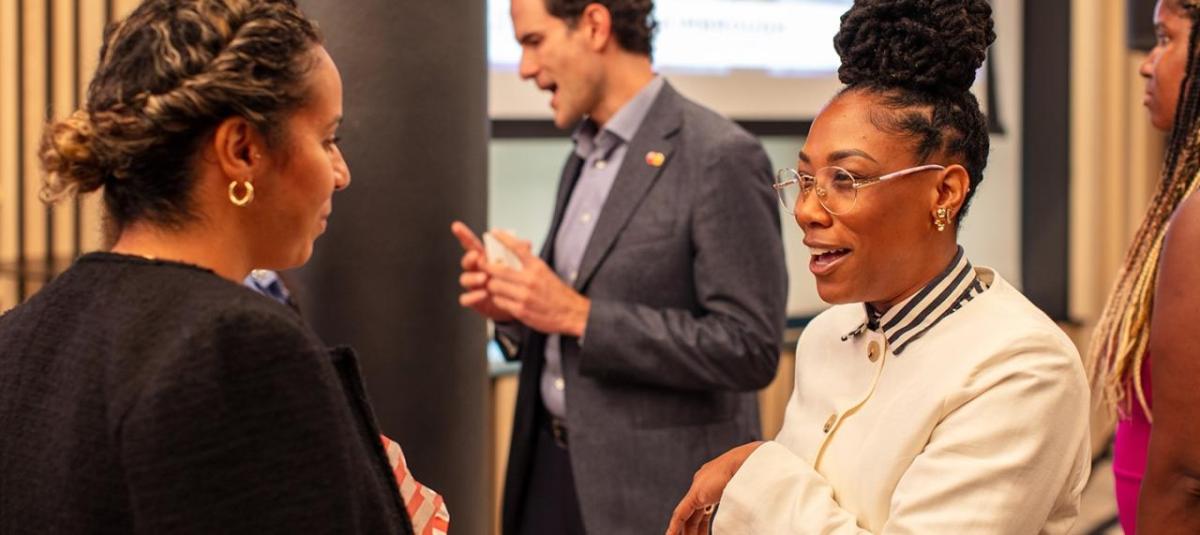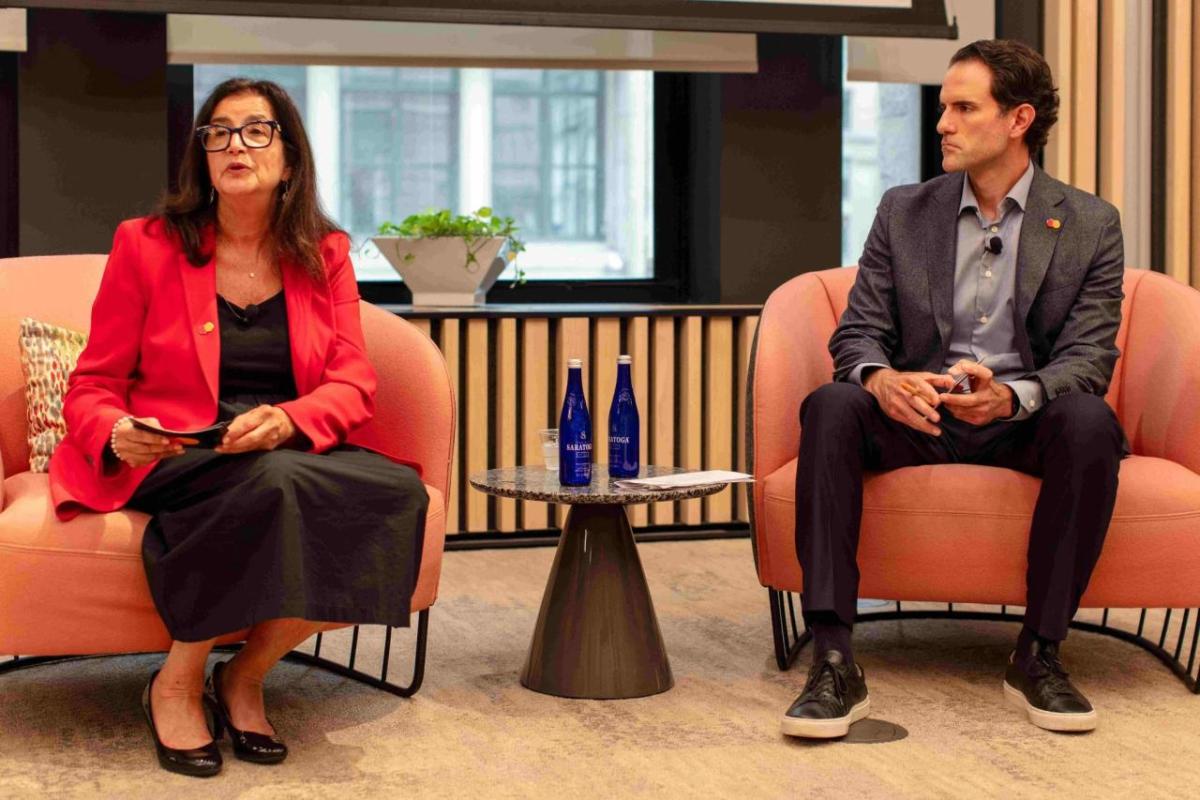Mastercard: How Entrepreneurs Are Finding Strength in Numbers
In New York City, small business owners find community and collective elevation as they face digital challenges, opportunities.
Originally published by Mastercard
When Elana Boyd Pea arrived in New York City for Mastercard’s exclusive watch party of CNBC’s Small Business Playbook last week, she wasn’t just there to network. She was there to champion a mission that’s been in her DNA since childhood.
Boyd Pea was raised in a household where entrepreneurship was a family affair. Her mother owned and ran a day care center for three decades, her father owned a barber school and his own barbershop, and she and her twin sister, Miranda Grimmage, got their barbering licenses as teenagers and have offered natural hair care services and sales as a side hustle for years.
As an adult, she recognizes the sacrifices her parents made — from going without salaries to make sure their employees got paid to prioritizing the utility bill for the day care instead of their home when money was tight. And as the founder of the nonprofit Black Charleston Professionals, which provides classes, networking, microgrants and other resources for about 250 solo Black entrepreneurs, Boyd Pea sees similar challenges firsthand every day and works to help business owners overcome them.
“It’s learning how to do things the right way — developing their business plan and structuring their business appropriately the first time, versus having to make all of these mistakes and learning from mistakes. That’s one of the reasons why our nonprofit was formed: to say we’re no longer as a community going to utilize the excuse of not knowing.”
Boyd Pea was one of dozens of entrepreneurs at the watch party and networking event hosted at Mastercard’s New York City Tech Hub, which sparked lively conversation and informal advice sharing about everything from cybersecurity tips to how technology can lighten workloads.
“Entrepreneurship isn’t just about individual success, but collective elevation,” says Ginger Siegel, Mastercard’s North America small business lead, who co-hosted the watch party alongside Jonathan Fantini-Porter, senior vice president of Social Impact for the Americas at the Mastercard Center for Inclusive Growth. “When small businesses win, everyone wins. That’s why we’re committed to creating these networking opportunities, sharing knowledge, and providing tangible support to help uplift this community."
The CNBC conference featured Mark Barnett, Mastercard’s global head of Small and Medium Enterprises, who outlined the three major challenges all entrepreneurs face, regardless of their business: greater access to capital, unlocking seamless digital experiences for themselves and their customers, and protecting their businesses from growing cyber threats.
Digital transformation is vital in a post-COVID world where most businesses have had to adapt to an omnichannel strategy, he said. In 2019, 29% of new U.S. card-accepting businesses were online only, but by 2024 that number had jumped to 44%. And building a digital presence not only builds sales, but builds trust with potential lenders, opening up new opportunities for capital.
But with the shift to digital comes new challenges, namely cybersecurity threats. Research by Mastercard last year showed that 46% of small businesses surveyed reported a cyberattack in the past year, risking severe financial repercussions, including closure.
There are reasons for optimism, Fantini-Porter says. The growth of the middle class, now four billion people globally, creates a significant opportunity for small and medium businesses to cater to higher levels of discretionary spending. That growing middle class, he said, increasingly favors “value for value,” or prioritizing products that promote sustainability, including upcycled and recycled goods, creating an opportunity for small and medium businesses to meet this demand.
To help small businesses make smarter decisions, avoid security threats before they emerge and bolster financial empowerment, Siegel pointed to resources such as Mastercard’s Small Business Navigator and its Digital Doors tools, focused squarely on safely establishing a digital presence, accepting online payments and managing their operations, as well as programs like Mastercard Strive to provide access to digital training, mentorship and knowledge sharing.
For entrepreneurs like Dawn Kelly, owner of the catering firm The Nourish Spot, these programs are making a big impact: “The online Digital Doors program gave me a place to learn at my own pace, giving me the technological tools I needed to build the digital frontier of my business,” she explained at the event.
Attendees came away from the Mastercard experience with new connections and a stronger understanding of the value of a community approach to entrepreneurial uplift. “What it means to me as a small business is knowing that I have the resource of collaboration,” said Troy Shaw, a fashion designer and celebrity stylist who owns Verve & Co. “I feel like we can do anything, and that’s what’s most powerful.”



